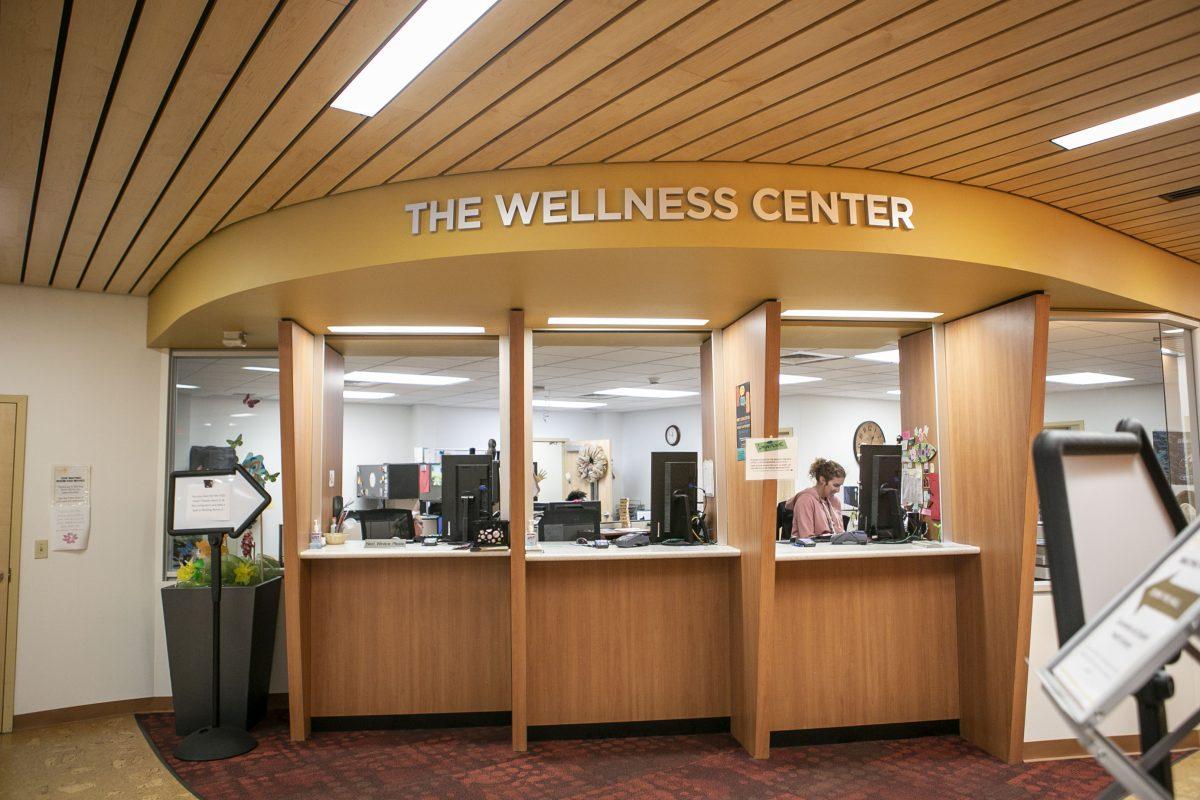Rowan University partnered with The Renfrew Center for Eating Disorders to promote the “Beyond the Mirror” campaign to raise awareness for National Eating Disorder Awareness Week.
The campaign aimed to combat negative self-talk with positive feelings of self love during the week which ran from Feb. 24 to March 1. In order to accomplish this feat, the Renfrew Center partnered with high schools, colleges, universities, doctor’s offices and retailers across the nation to spread this positive message.
Rowan University’s Wellness Center welcomed the opportunity to help promote the campaign, passing along resources including mirror clings, stickers and other items to promote positive body images.
“We’ve always had a good relationship with the Renfrew Center, and they were kind enough to send us some of their materials,” Assistant Director of Healthy Campus Initiatives Allison Pearce said. “It’s such an important thing to focus on what your body can do, rather than what your body looks like.”
The Renfrew Center opened in 1985, serving as a treatment facility for patients as young as 14, and has helped provide patients with the tools to recover from their conditions and cope with the stresses of life. Operating as the nation’s first residential treatment facility, the Renfrew Center has now spread across the country, with 19 locations in total. Many of these locations are outpatient programs treating girls as young as 12.
“[National Eating Disorder Awareness Week] is the national effort to make the public aware of dangers and causes of eating disorders, their signs and symptoms. And that recovery is possible,” Samantha Piazza, a team leader at the Renfrew Center of South Jersey, said. “We live in a culture that’s obsessed with fitness and dieting and perfection. It can be really difficult to recognize when a loved one or even yourself might be showing signs of an eating disorder because these behaviors associated with eating disorder may be really normalized in our culture. What we want people to know is that eating disorders are serious and potentially life-threatening illnesses that can affect people of all backgrounds, socioeconomic status, race and genders.”
While the Renfrew Center is committed to helping women of all ages overcome eating disorders, college-aged women are especially vulnerable given the drastic lifestyle changes that occur when transitioning to university life.
“If you think about transitioning to college, especially if you’re leaving your home and living on campus and dealing with the pressures that are associated with the increased independence at college, that’s definitely a time where somebody who’s biologically predisposed to having mental health issues, anxiety, depression and eating disorders would be at a much higher risk for developing something,” Piazza said. “If you think about college culture, that presents many more challenges for people than they might have experienced prior to being on a college campus. So we definitely target the college age because of those issues and the exposure that they have to the triggers that oftentimes can cause something to develop.”
The idea of eating disorders in popular culture often conjures up images of teenage girls dealing with anorexia nervosa, but in actuality, binge-eating disorder is much more prevalent.
“People always get tripped up in thinking that eating disorders are really about the food when they’re not, they’re about emotion regulation. People think that maybe they just have an issue where they need to diet or they need to lose weight and then the problem will be solved when in reality, people are really searching for physical solutions to an emotional problem,” Piazza said. “[Eating disorders] are number one in terms of fatality of all mental illnesses. Early intervention and getting the word out there, it’s just super important.”
With Rowan’s commitment to the overall well-being of students through Rowan THRIVE, the goals of the university and the Renfrew Center were in lock-step regarding this pivotal issue.
“[Eating disorders] don’t care who you are,” Pearce said. “Being sure to reach out to people and say: ‘Here are ways that you can celebrate what your body can do,’ you can move in a way that feels good. That’s all the Rowan THRIVE kind of stuff. How do you physically show that you love your body? The definition on our website is moving in a way that feels good.”
For comments/questions about this story, email [email protected] or tweet @TheWhitOnline.

























































































































































!["Working with [Dr. Lynch] is always a learning experience for me. She is a treasure,” said Thomas. - Staff Writer / Kacie Scibilia](https://thewhitonline.com/wp-content/uploads/2025/04/choir-1-1200x694.jpg)









































